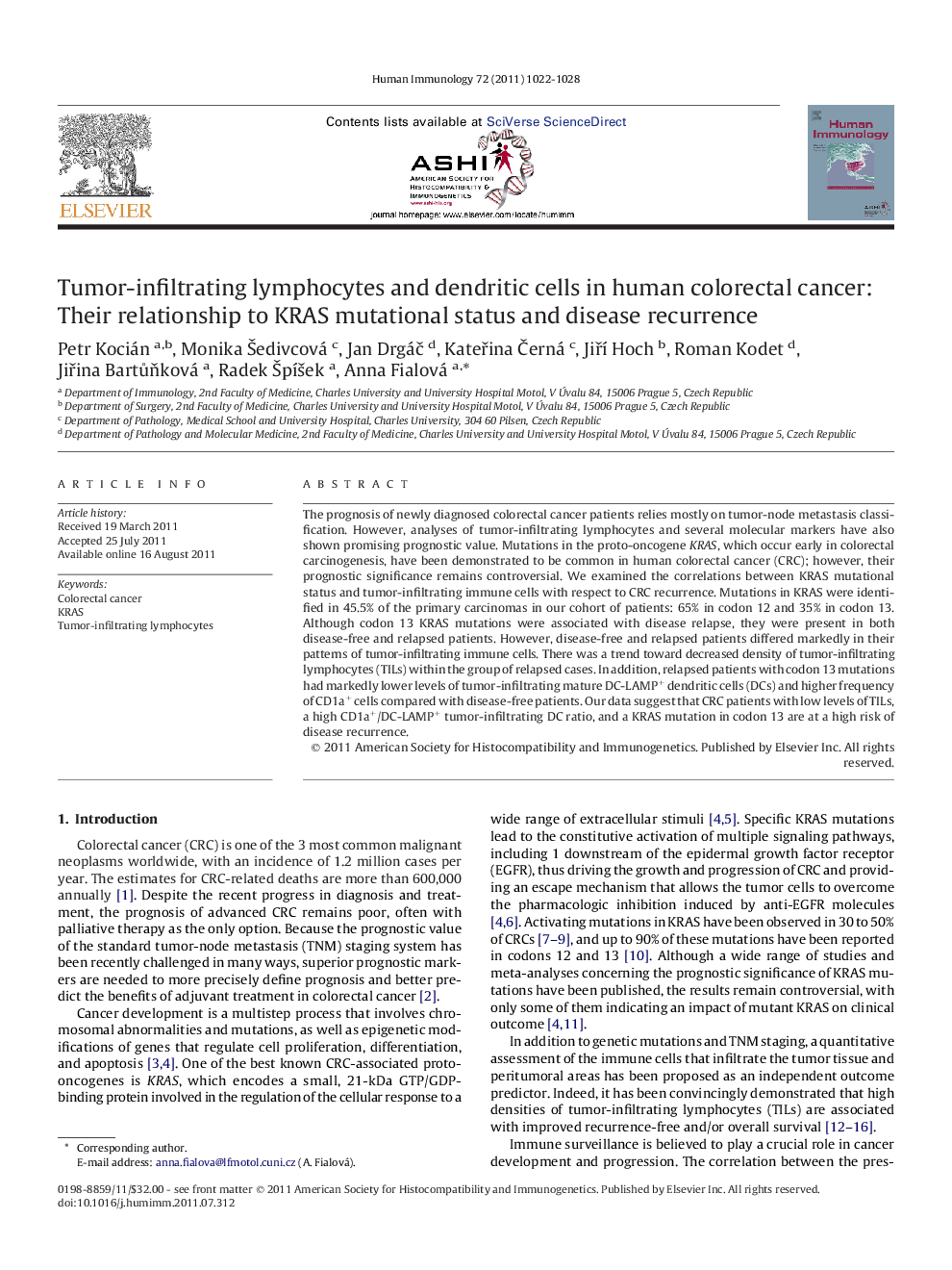| Article ID | Journal | Published Year | Pages | File Type |
|---|---|---|---|---|
| 3351309 | Human Immunology | 2011 | 7 Pages |
The prognosis of newly diagnosed colorectal cancer patients relies mostly on tumor-node metastasis classification. However, analyses of tumor-infiltrating lymphocytes and several molecular markers have also shown promising prognostic value. Mutations in the proto-oncogene KRAS, which occur early in colorectal carcinogenesis, have been demonstrated to be common in human colorectal cancer (CRC); however, their prognostic significance remains controversial. We examined the correlations between KRAS mutational status and tumor-infiltrating immune cells with respect to CRC recurrence. Mutations in KRAS were identified in 45.5% of the primary carcinomas in our cohort of patients: 65% in codon 12 and 35% in codon 13. Although codon 13 KRAS mutations were associated with disease relapse, they were present in both disease-free and relapsed patients. However, disease-free and relapsed patients differed markedly in their patterns of tumor-infiltrating immune cells. There was a trend toward decreased density of tumor-infiltrating lymphocytes (TILs) within the group of relapsed cases. In addition, relapsed patients with codon 13 mutations had markedly lower levels of tumor-infiltrating mature DC-LAMP+ dendritic cells (DCs) and higher frequency of CD1a+ cells compared with disease-free patients. Our data suggest that CRC patients with low levels of TILs, a high CD1a+/DC-LAMP+ tumor-infiltrating DC ratio, and a KRAS mutation in codon 13 are at a high risk of disease recurrence.
